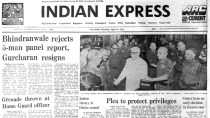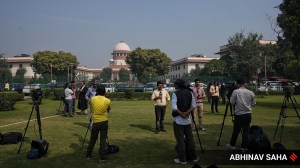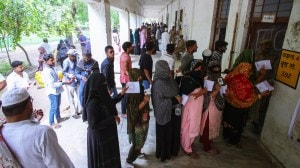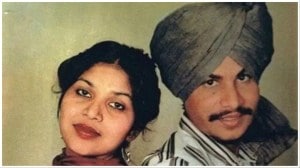- India
- International
View From The Neighbourhood: History lessons
A weekly look at the public conversations shaping ideas beyond borders — in the Subcontinent.
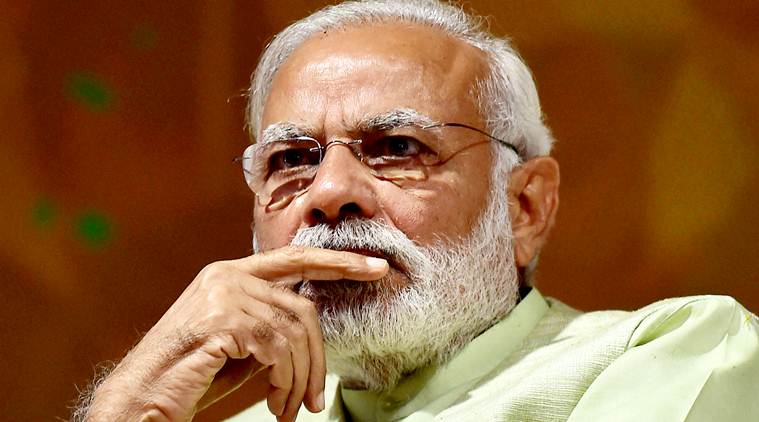 Prime Minister Narendra Modi. (PTI/File)
Prime Minister Narendra Modi. (PTI/File)
Akbar Ahmed, a former Pakistani-American diplomat and academic, has written a two-part essay in The Express Tribune (published on May 14 and 15) titled ‘What Modi can learn from Akbar’. Ahmed argues that along with Ashoka and Kanishka, Emperor Akbar presents a model of stagecraft for all subcontinental leaders. First, under his rule, India (as it was then) was among the greatest economies in the world, accounting for nearly a quarter of the world’s GDP. In contrast, India, Pakistan and Afghanistan together today account for less than four per cent. Second, “In any discussion of these emperors, we must not overlook their military might. Akbar’s army possessed some 30,000 armour-plated elephants which acted like modern tanks. His infantry and cavalry numbered in the hundreds of thousands. He was a successful military commander and doubled the size of his empire, extending — after half a century of his rule — from Afghanistan in the north, to the Muslim kingdoms in south India, from Sindh in the west to Bengal in the east.” Then there’s the fact that of Akbar’s “nine jewels” four were Hindus — his religious tolerance allowed him the best of talent in the military, arts and administration.
In the second part of the article, Ahmed focuses more on how contemporary India is squandering its legacy and opportunity, so unlike Akbar or even Modi’s more recent predecessors: “As someone committed to interfaith understanding and building bridges of peace between the two neighbours, I remain baffled and distressed to see India so casually throwing away its greatest identifying feature, one inspired by the very Indian religion of Jainism, that of Gandhian non-violence. Modi and his loyal media have been recklessly priming the country for nuclear war and putting Pakistan on alert, thus preparing the scenario for a nuclear exchange. The danger of all this to India itself and the world at large is ignored. Any nuclear exchange will be the ultimate act of self-destruction. The big lesson Modi can learn from the three emperors is that you can crush the opposition and minorities through your security forces and taxes, but if you want your country to truly prosper, you must win their hearts and minds which can only happen when you embrace all your citizens as part of the greater whole. If awoke in Modi’s India, the three emperors would ask, what has happened to our beloved homeland? Yes, they would say, Modi may have reached out to Mars, but we reached out to the hearts of our beloved people.”
Gwadar attack
The May 13 editorial in Dawn weighs in on how to deal with the insurgency in Balochistan in the aftermath of the second attack in the region this month. “Even more disturbing, the incident took place in Gwadar city, whose port is the gateway to CPEC and the veritable jewel in the crown of the multibillion dollar project — which makes the area one of the most heavily secured in the restive province,” remarks the editorial.
The motive behind the attack is clear: “Baloch separatist groups have made no secret of their hostility towards CPEC, which they perceive as yet another manifestation of state plunder of Balochistan’s resources. They seem to have stepped up their campaign in recent months with a number of high-profile attacks.”
According to the editorial, “the only long-term resolution to this extended, if low-key, conflict is a political one. The state must reach out to disaffected nationalists and individuals who have some currency with the more obdurate Baloch.”
Decoding desperation

Ziauddin Choudhury, a former Bangladeshi civil servant, puts into perspective Bangladesh’s “economic miracle” in a Dhaka Tribune article on May 16. Between 40 and 60 Bangladeshis reportedly drowned in the Mediterranean earlier this month attempting to migrate to Europe. While others that perished were fleeing war, destruction and instability in West Asia, Choudhury asks “why this group would include people from relatively “politically stable” countries such as Bangladesh and Pakistan. Is it so difficult to live in their countries that they have to take such measures to leave their country for unknown territories?”
In addition, the article states that many of those seeking a better life in Europe are not peasants or the illiterate, but “the majority of these voluntary refugees are young people; they are not peasants who left farming in search of better occupations. They are high school-educated, many with some college education. I know, because I have met many such young people in Italy, Spain, and Portugal who had succeeded in their adventurous journeys across the seas”.
The article then states that “we (Bangladeshis) flatter ourselves by gloating over our economic miracle. Our GDP quadrupling in the last 15 years. Our growth rate being consistently ahead of neighbouring countries. Our rate of literacy growing ahead of expectation. ” Yet, he argues, that unemployment has been left unaddressed and the education system has failed the youth. An argument that could be made for nearly all of South Asia.
EXPRESS OPINION
More Explained
Apr 26: Latest News
- 01
- 02
- 03
- 04
- 05











